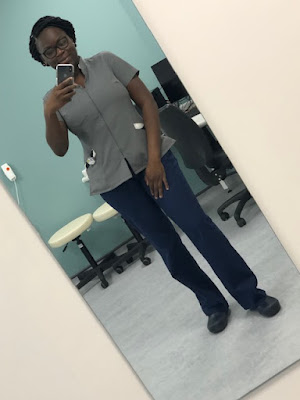The Future of Oncology (Cancer Care) I see
Hi Everyone,
Welcome back to my blog guys, my last blog post was an eye-opener for me – I know I say this at the beginning of each post however something amazing happens everytime. After writing my last post, two weeks later I was informed that some of the suggestions in that post was actually part of the deal that the government recently signed with other healthcare providers, it was not only an eye-opener but it really inspired me myself and demonstrates the power in writing than just speaking about it.
Moving forward, what do I see as the future of oncology? What do I see oncology becoming? What technology will be used, what clinical trial will be the new standardised protocol, what new chemotherapy drugs or modalities will become the norm were the questions I found myself asking?
I recently came across an article by KPMG’s Global Strategy article titled “The Future of Oncology – A focused approach to winning in 2030.” The article highlighted a few facts that are worth knowing, facts such as:- Globally, oncology has the highest cost than any other disease which means there is a higher demand for increased successful treatments.- Insurance companies, self-paying patients and the systems NHS are moving towards value-based pricing for treatments, which simply means treatments that will priced on their benefits, their effectiveness.- Advancement in technology is likely to increase in oncology than other diseases.According to Cancer Research UK, worldwide there are 17 million new cases of cancer, 9.6 million deaths from cancer worldwide and 33% of cancer cases linked to exposure to tobacco smoke worldwide in 2018. The three main causes of cancer is: lifestyle choices (smoking, diet, alcohol), family history (genetics) and environmental (asbestos), tackling these causes will ultimately reduce the prevalence of cancer worldwide including in Low Resource Countries.
There are 1 billion adults that smoke cigarettes worldwide, infections in countries is becoming prevalent therefore also becoming a contributing factor for cancer cases. The UK is ranked high in both incidence and mortality (death) of cancer cases, it is estimated that there will be 27.5 million new cases of cancer each year by 2040.
These are all shocking figures, it is also saddening that these figures are not estimated to reduce in the future. These figures are people’s mum, dad, uncles, aunties and loved ones that will have to go through this dreaded disease again which can be avoided by taking necessary action to prevent this.
Therefore, what is the future of cancer care that I see or what do I want cancer care to look like in 2030? I believe the government should invest heavily in preventative measures such as raising awareness especially towards lifestyles choices e.g. smoking. We cannot underestimate the power of education within the community, an investment in raising awareness will force people to be more conscious and aware of how they chose to live their life, more awareness of screening procedures available, testimonials of cancer survivors should be shown more so the general public are aware how much a cancer diagnosis changes an individual’s life from emotionally, physically, mentally and financially also. Despite the abundance of information available about cancer, most people are still very much unaware but they genuinely do want to be informed, the increase in awareness will help tackle the “lifestyle” cause of cancer to a great extent.The future of cancer care that I want to see is Cyber-knife, MRI-Linac and Proton therapy machines should become the norm treatment machine for radiotherapy cancer treatments; why? MRI-Linac allows better tumour, soft tissue delineation and allow real-time tumour tracking, proton therapy helps us treat young adult patients with less side effect and even rare tumours without travelling outside the UK. Cyberknife is effective in tumours that are inoperable or even “hard to reach”, it serves as a better alternative to surgery with less recovery time.Currently, we have very few MRI-Linac in the UK and in the world, similarly there are currently only two hospitals with proton therapy machines in the UK; more investment needs to deployed into research and development in these machines whereby cancer care in the UK is constantly at the cutting edge and value based treatment are constantly offered to patients.
I believe chemotherapy drugs will be improved to the extent that patients might not have to visit the hospital as often, drugs will be improved to have less toxicity and harsh side effects. Immunotherapy, molecular therapy will be the norm treatment than just certain treatments, I believe genomics and panomics could possibly be the cure of cancer especially in patients with family history of cancer, the gene-editing techniques will provide solutions to abnormal genes leading to cancer.Lastly, more investments need to push clinical trial so there more diverse interventions for individual’s disease, more individualised/personalised care for every cancer patient. In conclusion, I believe if these changes are implemented the future of cancer care will mean less in-patients/intensive care needed, reduced end of life care, less time in hospitals, more survival whereby health systems will not have to rush or keep repeating the same treatment that has been around for decades. This is the future of cancer care I see.
With Love,
Mary Oladele
https://www.cancerresearchuk.org/health-professional/cancer-statistics/worldwide-cancer#heading-Zero




Comments
Post a Comment